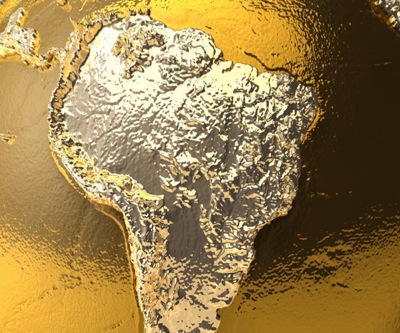Brazil gold reserves reach 11-year high

Brazil increased gold reserves for the second straight month, reaching the highest level in 11 years, data from the International Monetary Fund showed Wednesday.
The country, home Latin America’s largest economy, raised its bullion holdings by 17.2 tonnes in October to 52.5 tonnes, the highest level since January 2001. The move comes on the back of Brazil’s 1.7 tonne increase in September, the country’s first significant gold purchase in a decade.
The South American nation, whose golds account for about 5% of its total reserves, is the latest emerging economy to buy gold.
Central banks have lately been diversifying their holding. The IMF said that — as a group— they are now set to buy almost 500 tonnes of gold before the end of the year. This would represent the highest amount in over 40 years.
In addition to Brazil, others nations including Colombia, Mexico, Argentina and Paraguay have recently been adding to their bullion holdings.
The IMF’s monthly statistics published yesterday also indicated that the euro area had lowered its gold holdings by 4.168 tonnes to 10,783.609 tonnes last month.
The drop was mainly driven by Germany, which reduced its reserves by 4.199 tonnes to 3,391.446 tonnes in October.
Digging at home
In September, a controversial project to mine Brazil’s vast indigenous territories for gold, iron ore and other riches in the Amazon, revived a long-dragged confrontation among authorities, environmentalists and local communities.
The bill, which aims to revoke Brazil’s indigenous groups “inalienable rights” over their lands, granted by the 1988 constitution, would allow mining in a vast area that covers nearly 13% of the country, or an area almost twice the size of Spain.
{{ commodity.name }}
{{ post.title }}
{{ post.date }}




Comments